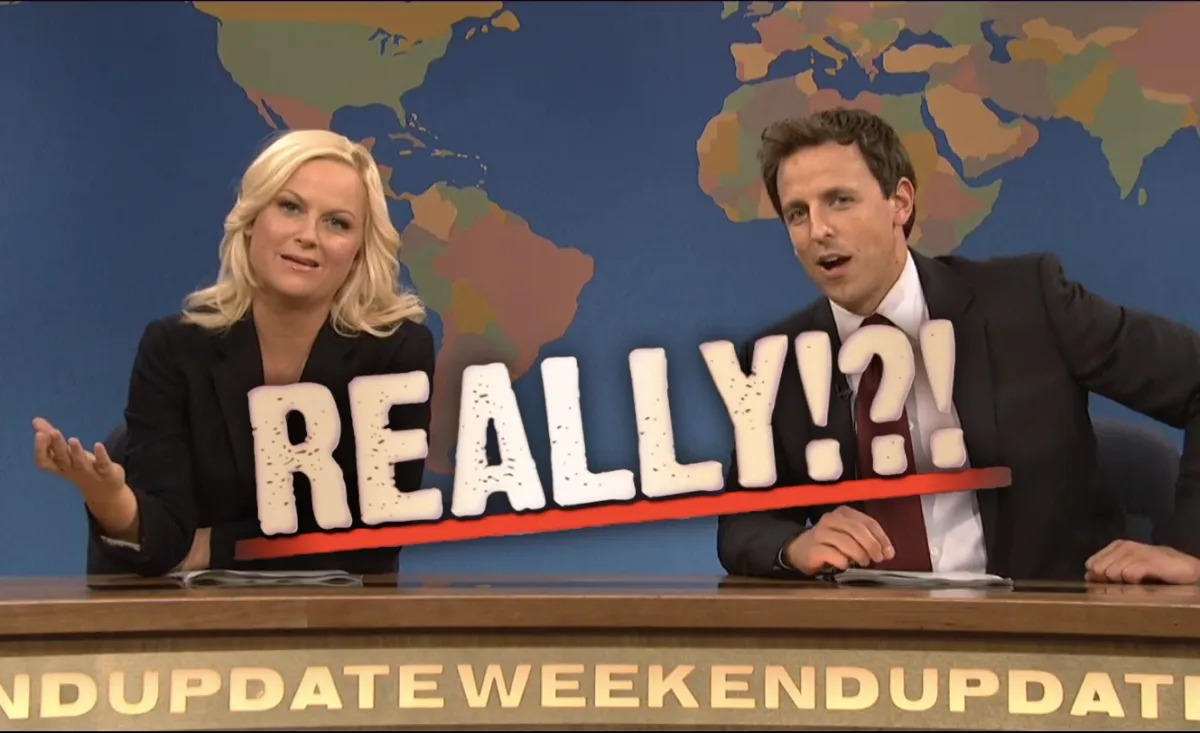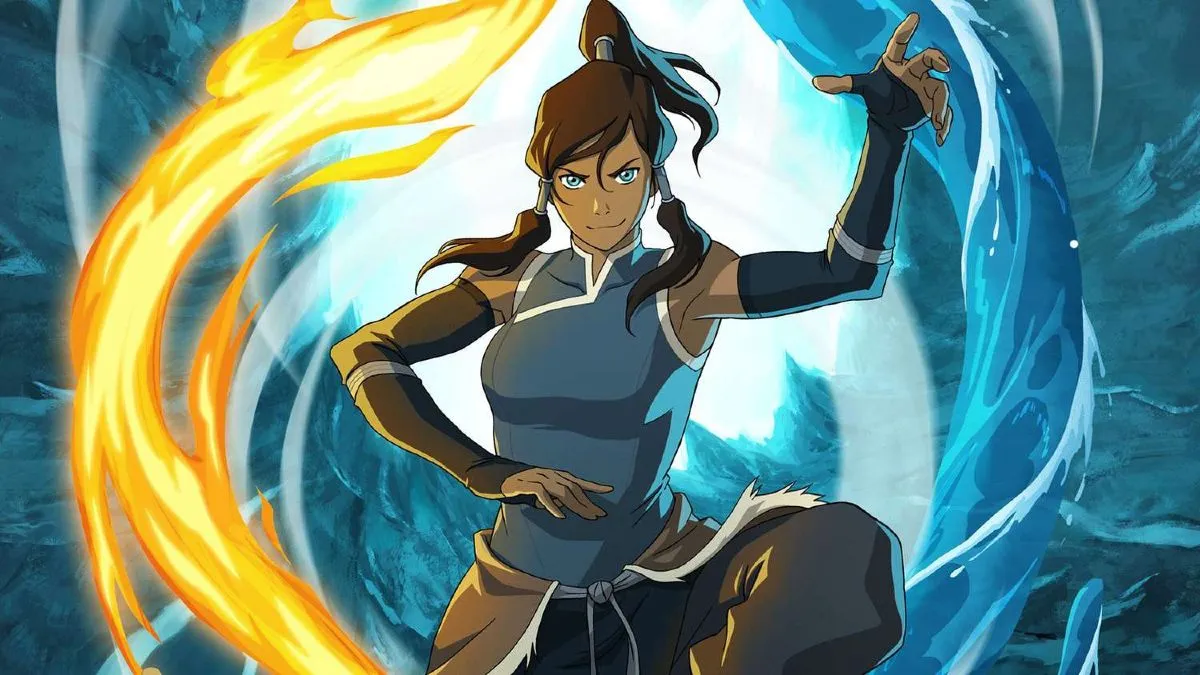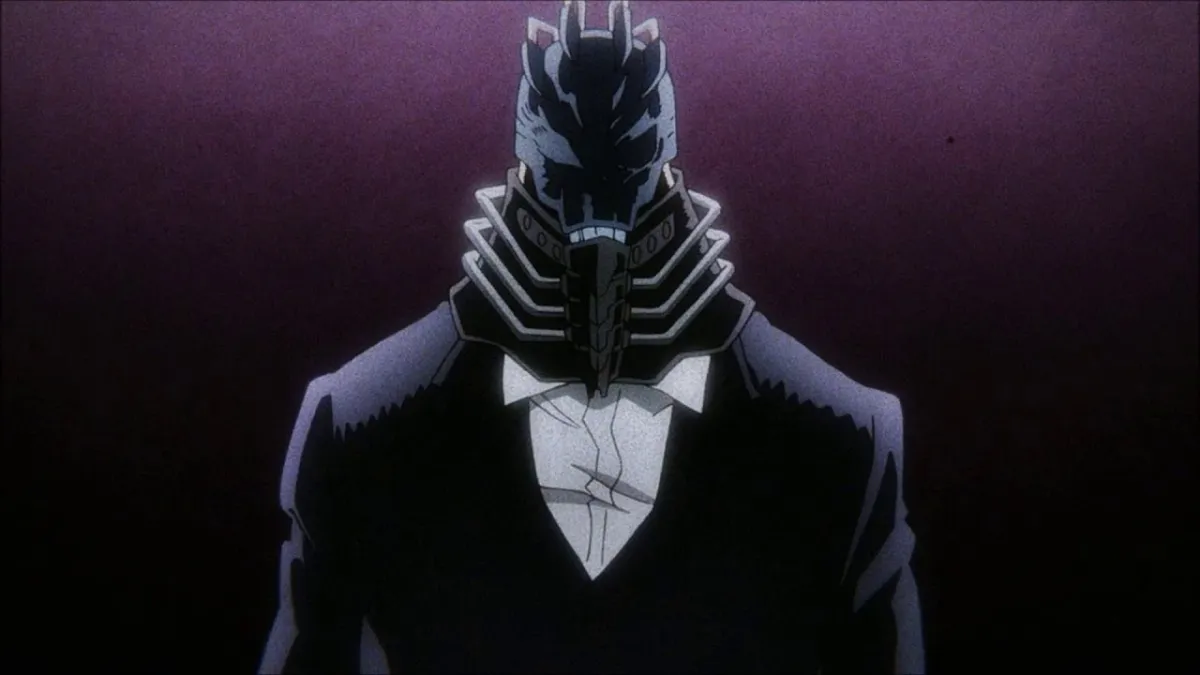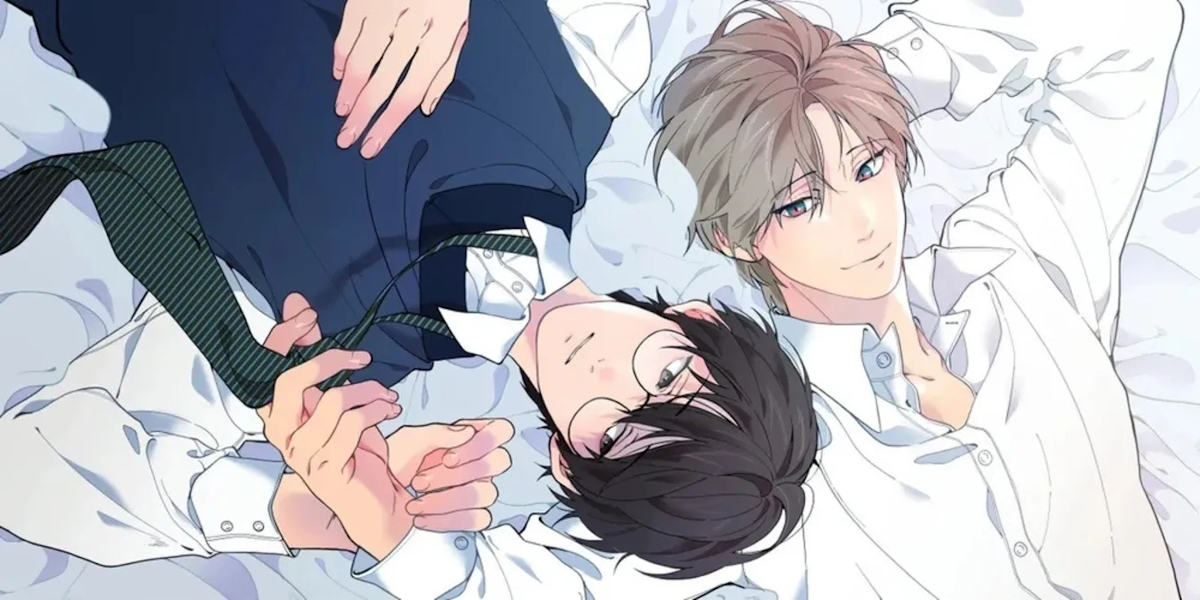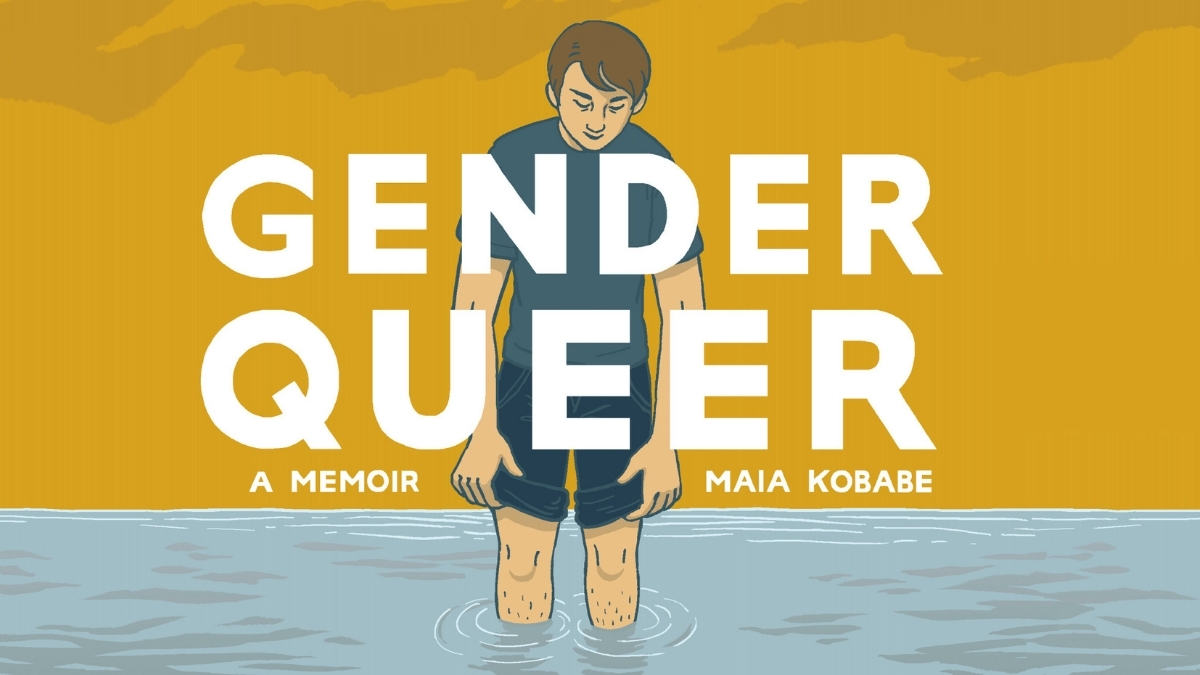Earlier this month, we wrote about an upcoming panel at Gen Con entitled “Writing Women Friendly Comics.”
The panel’s condescending description and its all-male lineup concerned us, but Gen Con responded quickly. In addition to finding female creators to join the discussion, Gen Con (and panelists like Gene Ha and Jim Zub) were vocal in their relief that a panel about women would now include some women’s voices.
Being an ally can be complicated, but it’s not hard to not be an asshole; although I appreciated that Gen Con and its panelists were so reasonable in addressing our concerns, I wasn’t surprised. Why shouldn’t they be reasonable? Of all the “radical” things feminists can be accused of, asking for at least one woman to be included in a discussion about women hardly seems extreme.
Unless you ask Bill Willingham, I guess.
Every panelist at the “Writing Women Friendly Comics” was beautiful and got it. Willingham, on the other hand–douche lord. @TheMarySue
— Jessi Witt (@jessiwitt) July 30, 2015
We’ve received several emails describing yesterday’s panel and Bill Willingham’s behavior as moderator. I’ve included excerpts from them later on in this post, not because I want to personally condemn Willingham, but because I think the behavior attendees describe witnessing from him is inexcusable and indicative of a more widespread problem.
Like I said, it’s one thing to not be aware of your privilege (we’re all guilty of it), but it’s another thing entirely to behave like an asshole when asked to lower one’s metaphorical voice in a conversation created to advocate for women. (Unless, of course, this panel was designed from the outset to play devil’s advocate at the expense of the female comic community; which, to be honest, is seeming more and more likely.)
Claiming that success in the industry is merit-based and gender-irrelevant while simultaneously using your position as an established male creator to literally shout down women’s voices is willful ignorance. It isn’t eccentric; it isn’t cute, and it isn’t excused by the generation you’re from or the comic world you came up in. Unfortunately, it’s also not uncommon.
Shelby White explained to us (over Twitter first, and later via email) that Willingham
[…] consistently played “devils advocate” while interrupting almost every panelist and audience member who spoke! Poor Delilah Dawson barely got to speak, and she didn’t get to say anything after she, as she put it, “had to be the one to point out” to Bill that he was a white man. That got applause from almost everyone listening, like finally someone said it! The last audience member to be called on–after he interrupted her–called him out on how he interrupted every single woman who spoke. He, of course, tried to argue with her.
Jessi Witt wrote,
So, the first words out of Bill Willingham’s mouth were a testy disclaimer about how this was not a “women in comics panel” and yet, because of a website of questionable journalistic integrity (I forget the exact quote, but basically: Throwin mega shade at TMS) it basically was now, so-thank-you-very-much. It was wild, the first thing he says in a panel to set the mood is whingeing about accountability. There was a lot of whingeing. I considered walking out after his words because he made it pretty clear that he had an agenda from the outset that I didn’t necessarily want to hear.
[…] A lot of the focus that Willingham tried to push was whether or not you should try to write FOR a certain subsect of any population, and who is qualified to do that. This is an interesting point, except that the devil’s advocate role he was playing was simply pushing for the ability for more cishet white guys to be able to write whatever they want and tell every story–which, you know, they totally can (and do). The thing that he didn’t seem to grasp, which was called out to him by audience members and several panelists, is that there are so many creator’s voices that are not being heard or elevated that can give genuine, insightful accounts of their lives and experiences. The panelists ameliorated his points by taking about their own experiences writing characters well outside of their experience and the need for due diligence.
The devil’s advocacy was going HARD. Alina Pete talked about her experience about the joy of seeing herself represented in media as a woman and as a Native American and the pitfall of that situation (hearing your supposed experience incorrectly from outsider’s voice). Bill Willingham went out of his way to give overlong examples of instances where white men might be better suited to write the stories of other people. When faced with the notion that the person best suited to tell a story is someone of the culture himself, he went off on a tangent about a World War II boat made entirely of ice. He seemed to think that soldiers serving on that particular vessel, who are not alive anymore and cannot tell their specific stories, was equitable to minorities whose entire image is directly affected by representation and the silencing of their voices by the, generally, straight white men who would speak for them.
[…] Willingham continually spoke over everyone he engaged with, which is a pretty fitting (but god, frustrating) move for a dude who doesn’t seem to get the concerns of minority writers at all. He certainly was a catalyst for a lot of things, but discussion wasn’t one of them. He remarked at one point that he was glad that he was provoking so many of the audience members to want to participate, since by about half way into the panel there were a lot of scrunched-up faces and raised hands.
Near the end of the panel, Willingham called on a woman to speak. Not one sentence into her statement, he stopped her to talk again. Another woman from the other corner of the room called to him that he needed to stop interrupting women to speak over them, since he had doing this most actively to the women. He got prickly about that and responded with, “Really?” No apologies, no deference, just more talking.
Niki Messmore detailed her experience at the panel over Twitter, and also sent us an email about the event:
I went to the panel because The Mary Sue shined a light on it; otherwise I would have missed it completely since events are so packed at GenCon. I walked in there hopeful because there were two women on the panel.
However, the panel started with:
Bill: “This is NOT a women in comics panel…A certain rabble-rousing website with no journalistic integrity whatsoever tried to redefine this as a women in comics panel…”My jaw dropped. I looked at the women behind me – we had talked about how The Mary Sue led us to this panel and now Bill Willingham was already starting the panel being defensive.
The panelists (not Bill, who was the mod) were FANTASTIC. They “got it”. Jim said in his intro that if he had known there were no women originally he wouldn’t have done it and he was glad that Alina Pete and Delilah S. Dawson joined.
Essentially, Bill interrupted every woman – including the panelists and the audience members – multiple times. He was defensive about the privileged status of white men and spoke over personal accounts.
Then the breaking point happened.
Alina discussed how “I am half native and my sister is fully. We have different experiences due to color. I walk into a store and am fine and she gets security on her” and gave examples of how race affects folks and incites discrimination (including referencing how black people are treated by cops).
Bill then states how well then “the most homogenous white group is the Appalachian and why aren’t thy running the place?”
My first thought “IS HE SERIOUS RIGHT NOW??!!!”
The crowd rustles. Folks are visibly upset. Bill can’t see past his privilege or critically think about how the world works (like the concept of intersecting identities and how Appalachia is a low-income area and that affects status). Folks start raising their hands, but Bill took only about 3 questions at most and wasn’t taking any now.
Eventually, 45 minutes in, he let the girl I befriended behind me ask a question. She asked a follow-up question about his question earlier on if it was better to get a good female writer or just any writer (making it sound as if there are only a few – I question how he classifies ‘good writers’ as I’m sure his privilege clouds his lens).
And Bill interrupted her.
I was sick of it.
I was seated in the third row at the end and in eyesight of Bill. I interjected loudly, raised my hand, and cut off his interruption. I called out: “Can you PLEASE stop interrupting? You keep inbterrupting all the women on the panel and in the audience!”
He was shocked. Flabbergasted. Like no one had ever dare call his authority into question. He sputtered and seemed honestly confused that he was engaging in bad behavior.
Bill said “I respectfully disagree” to my statement and moved on. Then Gene tried to talk and Bill interrupted him, and a woman of color in the front shouted how he keeps interrupting women and now minorities (Gene is an Asian man).
The panel ended shortly due to time.
Again, we’re floored to hear that Willingham seemed upset over our story and the fact that it created a more diverse panel—especially when other panelists and organizers expressed so much support and remorse:
@GailSimone It was not the original plan, no. I’m glad it’s being fixed, believe me. @sarilys13 @TheMarySue @GeneHa
— Jim Zub-GenCon#1935 (@JimZub) July 24, 2015
@TheMarySue @Gen_Con I would have died of blushing, on a stage with no women. Woulda spent my time asking women in audience to talk.
— GeneHa (@GeneHa) July 24, 2015
@sarilys13 @JimZub Imagine if no one had said anything until the panel was under way. We would have been screwed! That’s why I say thanks.
— GeneHa (@GeneHa) July 24, 2015
@marc_tassin @JimZub @GailSimone @sarilys13 @TheMarySue Not that we didn’t screw up, but what a teaching moment! Or for us, a LEARNING ONE!
— GeneHa (@GeneHa) July 24, 2015
@JimZub @GeneHa @GailSimone @sarilys13 @TheMarySue I thought it was better to keep the conversation than not, but clearly I was wrong.
— Marc Tassin (@marc_tassin) July 24, 2015
And there were many more tweets like this when the news about the panel originally came out. With so much clear support from Gen Con and other panelists, Willingham’s negative remarks about the entire debacle seem to completely miss the point on a panel about making things “women friendly.”
A panel attendee who wished to remain anonymous wrote us,
[…] I and many other women who attended that panel today left FURIOUS.
The panel was moderated by Bill Willingham. I use the term moderated loosely because he used his position as a bully pulpit. Over the course of the panel he put forth one straw man argument after another to excuse the abundance of white men both writing and starring in comics. He repeatedly talked over the two hastily-added women on the panel as well as the other men, who spoke to their experience and happily acknowledged their privilege and the challenges that it created in creating authentically diverse characters.
When one of the female panelists brought up that major publishers regularly put forth “redesigned” comics about female characters, there are no women in the writing or art team, the moderator posited that this was because they had gotten “the best people out there” and wasn’t that what we wanted?
When someone pointed out that if the writing team lacked diversity it was more because of laziness, the moderator threatened to shut down the panel, then mocked the woman in the audience who called him out for repeatedly cutting off or speaking over both the women in the panel and in the audience. for the rest of the panel he proceeded to not only speak over others, but mockingly apologize for it as though he thought the whole thing was hilarious.
He kept turning the conversation back to his belief that if a white cis man had a better understanding of a subject than X character who could personally speak to the experience, they should be the one to tell the story. He denied that appropriation was a thing, insinuated that the women who told him otherwise were wrong and “hated men” and just generally was a misogynist jerk.
After the panel, most of the women who had tried and failed to speak up during the panel gathered in the hall shaking with rage and frustration. We spent the entire hour in what amounted to a debate with him about whether privilege and appropriation were real.
He also began the panel by talking about a certain “rabble rousing site” that had complained about the lack of women on the panel and that since they had the “right connections to the powers that be”, we were forced to actually endure women being added to the panel. (HA!)
I got a chance to speak to Jim Zub, who co-created the Wayward series, after the panel. During the panel he spoke many times about acknowledging his privilege, working to tell authentic stories and the need for more representation. He also shared that he had been approached to head a new comic about a Black female protagonist and he asked why because in his mind, it would be far better to have a Black female writer. When they told him they were interviewing a group, he replied that the group should have been made of Black female writers. He also joked, during the panel that his wife often keeps him in check by saying “grant me the confidence of a mediocre white man”.
After the panel he shared with me that he had not known what the panel was going to be. they scheduled most writers for a series of panels without telling them what each panel would be. He was surprised that the panel had originally been all-male, frustrated that there weren’t more women, and clearly shared in our outrage at the panel having gone so spectacularly horribly. He thanked us for sitting through it.
It was clear that Mr Willingham had never been asked to consider his privilege and was so uncomfortable with the idea that he even had it that he was willing to hijack the panel to further his agenda of mocking the very audience there to hear some new and interesting ideas.
[…] I also want to add that I wrote to Marc Tassin, who oversaw the events and originally addressed publicly the lack of women on the panel. He responded quickly to acknowledge my concerns and told me he would respond further later. He also offered to speak with me personally if I stopped by the booth during the con.
I should also share perhaps one of the most jaw dropping moments of the panel, which was when in response to the “grant me the confidence of a mediocre white man” Willingham responded “not all men…” and went on to give examples of shy white men he knew. The audience went from stunned silence to incredulous giggling at what we had just heard. I heard many around me whisper “#notallmen”.
Many of the attendees who emailed us stressed repeatedly that the other panelists brought valuable information to the discussion, and that Gen Con as a whole has felt like an inclusive and positive experience so far. “Writing Women Friendly Comics” also prompted an interesting discussion on Twitter (somewhere it’s slightly harder to interrupt women) about the relative merits of these kinds of panels:
I am not against “Women In _____” panels. I get exhausted by them and they are often goofy as hell. But I still see a lot of people benefit.
— GAIL SIMONE (@GailSimone) July 31, 2015
I have been on a million such panels and I’m pretty sick of them, but I routinely hear from women who gained some courage from these panels.
— GAIL SIMONE (@GailSimone) July 31, 2015
I have been on a million such panels and I’m pretty sick of them, but I routinely hear from women who gained some courage from these panels.
— GAIL SIMONE (@GailSimone) July 31, 2015
And sometimes really good discourse comes from them. I don’t think we are yet at a place where they aren’t needed sometimes.
— GAIL SIMONE (@GailSimone) July 31, 2015
I love them, and POC panels. I think even if the industry got better with diversity, we’d still these panels. https://t.co/1PdVleEyRH
— Foxxandei Naath (@FoxyJazzabelle) July 31, 2015
We reached out to Bill Willingham and panelists Alina Pete and Delilah S. Dawson for comment but have yet to hear back; we will update this article when we do. If you attended the panel and would like to discuss your experience (either positive or negative) feel free to share in the comments below, or to send me an email.
UPDATE: Panelist Delilah S. Dawson provided us with a statement via email in response to our request for comment:
Here’s my dilemma: as a woman trying to make the leap from traditional publishing to comics, do I speak up and risk rocking the boat? After seeing the frustration in the audience yesterday during this panel, the answer is yes. Women clearly want to see themselves in comics and to see female teams working on comics. I’m so grateful that Jim and Gene are on the side that listens instead of condemns or ridicules. Now, let’s get Wonder Woman some straps.
UPDATE 10:50 ET, August 1st: Panelist Alina Pete has also provided us with a statement via email:
I don’t want people to think that the female panelists were silenced during the panel – we both went out of our way to make sure we were heard. Major props to Jim Zub, Chris Roberson and Gene Ha for being good allies and giving us room to talk.
It’s really too bad that the panel kept getting derailed by our moderator. When the panelists and the audience were actually able to discuss the topic of creating female-friendly comics, the things that were said were both important and positive. We talked about the need to foster an environment where marginalized people are given a chance to tell their stories, and about the importance of seeing yourself represented in the media. These are great conversations. These are conversations that need to happen more often.
Hopefully next year we can get back to what the panel was actually supposed to be about – maybe even with a female writer/creator as moderator?
—Please make note of The Mary Sue’s general comment policy.—
Do you follow The Mary Sue on Twitter, Facebook, Tumblr, Pinterest, & Google +?



